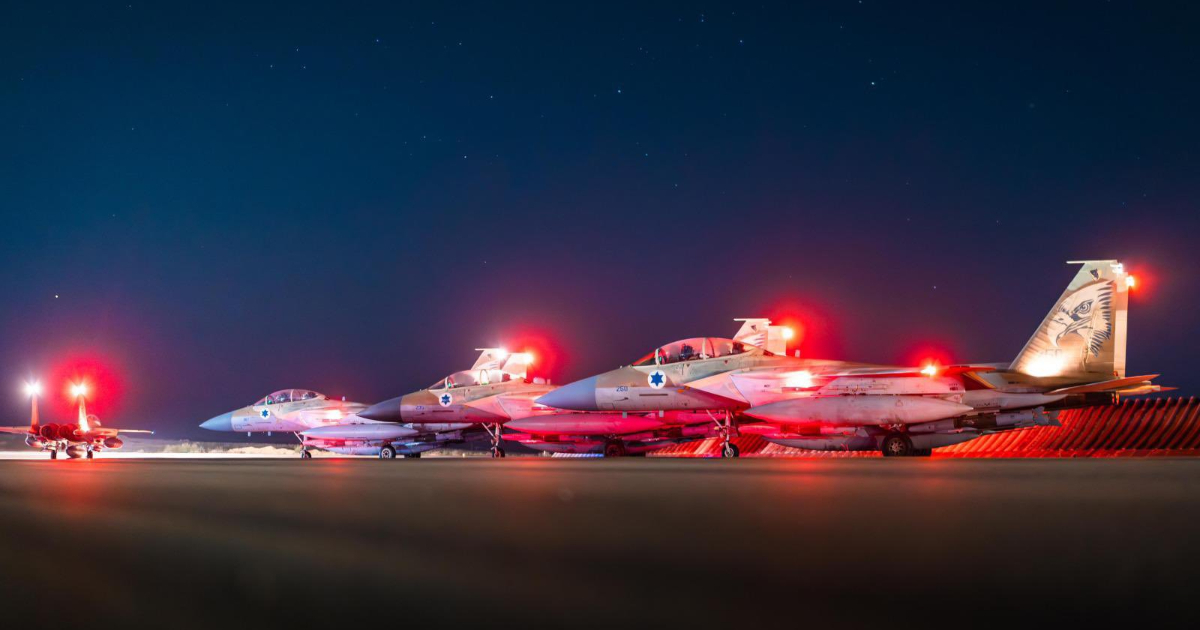In a bold move, Israel's recent military initiative dubbed "Operation Ascending Lion," has reignited discussions regarding Tel Aviv's true intentions: Is it merely an effort to dismantle Iran's nuclear ambitions, or a calculated attempt to instigate regime change in Tehran?
On June 13, 2025, Israel executed a series of carefully orchestrated air strikes targeting over 100 sites within Iran, including critical nuclear facilities such as Natanz, alongside research centers in Tabriz, Isfahan, and Arak. In addition, key military leaders were targeted, notably Iran's Chief of Staff Mohammad Bagheri and Revolutionary Guard Commander Hossein Salami. The Israeli military asserts dominance over Iran's airspace following these operations.
Israeli Prime Minister Benjamin Netanyahu defended the campaign as a preemptive strategy aimed at preventing Iran from acquiring nuclear weapons, labeling Iran's nuclear program as a direct existential threat to Israel.
Assessing Israel's True Objectives
While Israel's stated aim is to halt Iran's nuclear progression, some analysts speculate that the offensive may also be an attempt to destabilize the Iranian regime. Despite the inflicted damages, Israel's capacity to completely dismantle Iran's nuclear infrastructure remains restricted. Comprehensive destruction of these sites would necessitate specialized weaponry that Israel currently lacks.
Netanyahu has openly called on the Iranian populace to revolt against their leaders, echoing slogans from past protests to encourage dissent. Nonetheless, experts like Sanam Vakil from Chatham House argue that regime change in Iran is improbable without direct U.S. intervention. Vakil highlighted in an interview with The Guardian that Iran's power structure is deeply institutionalized, providing resilience even after losing key leaders.
Iran's Civil Society: A Catalyst for Change?
Since the tragic death of Mahsa Amini in 2022, Iran's civil society has increasingly opposed the regime, particularly among women and the youth. The "Woman, Life, Freedom" movement has galvanized broad sectors of the population, challenging governmental restrictions.
Exiled organizations like the National Union for Democracy in Iran (NUFDI) have gained prominence, advocating for democracy and human rights. Despite this, a unified leadership and governmental repression have hindered their domestic impact. Analysts note that while discontent is widespread, the lack of solid organizational frameworks and charismatic leaders makes a regime change driven by civil society unlikely.
Amidst this scenario, Reza Pahlavi, the exiled shah, has increased his media presence. In a recent BBC interview, he declared the "Islamic Republic is in its terminal phase" and urged the international community to support the Iranian people rather than negotiating with the current regime. Although lacking formal political power, Pahlavi holds symbolic influence among the diaspora and advocates for a transition to a secular democratic system.
His statements reignite discussions about the feasibility of an alternative to theocratic rule and whether internal protest movements might rally around a credible and cohesive leadership figure.
Conclusion
"Operation Ascending Lion" underscores Israel's resolve to prevent Iran from becoming a nuclear power. However, the potential for inciting regime change seems increasingly plausible, albeit fraught with possible unintended consequences. Without a clear strategy and necessary international support, Israel's objectives might prove elusive, while the risk of regional escalation intensifies.
Israel and Iran Conflict: Key Questions Answered
What is "Operation Ascending Lion"?
"Operation Ascending Lion" is a military campaign launched by Israel targeting over 100 sites in Iran, including nuclear facilities and military leaders, as a preemptive measure to prevent Iran from acquiring nuclear weapons.
What are Israel's objectives in Iran?
Israel aims to neutralize Iran's nuclear program, viewed as a significant threat. However, there is speculation that Israel also seeks to destabilize the Iranian regime.
Can Iran's civil society influence regime change?
While there is growing opposition among Iran's civil society, particularly among women and youth, the lack of unified leadership and strong organizational structure makes regime change unlikely without external support.
